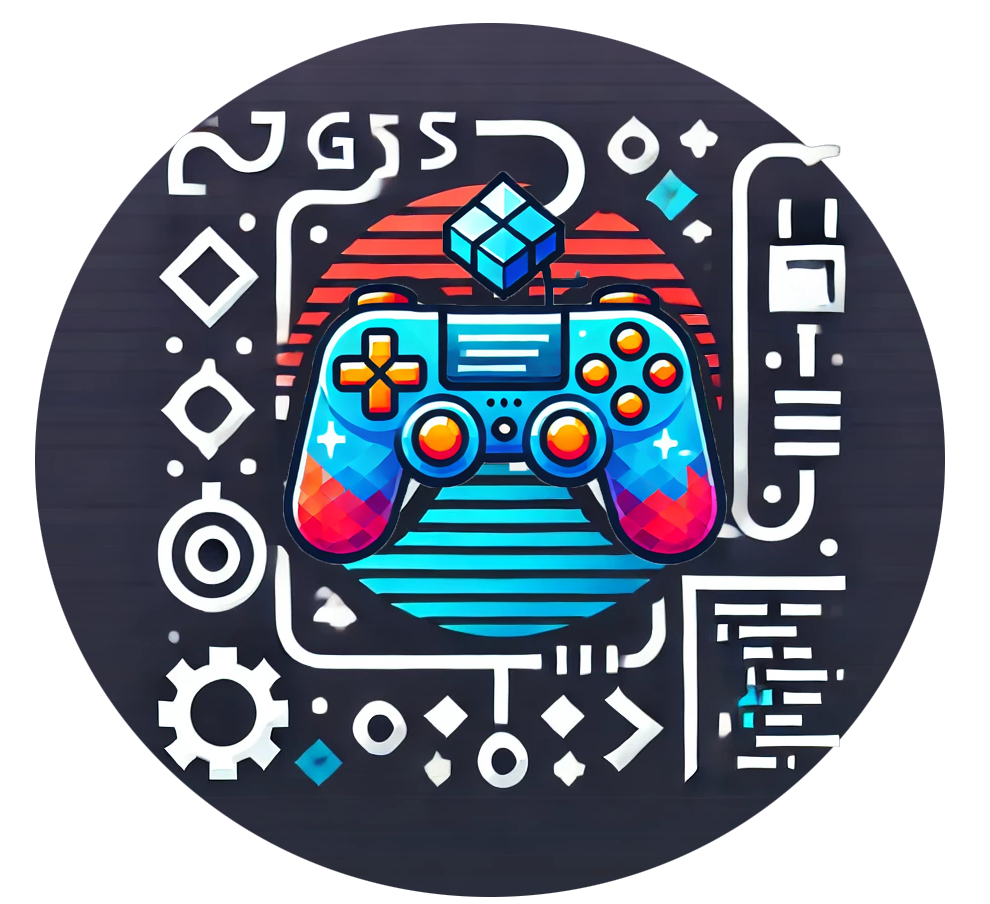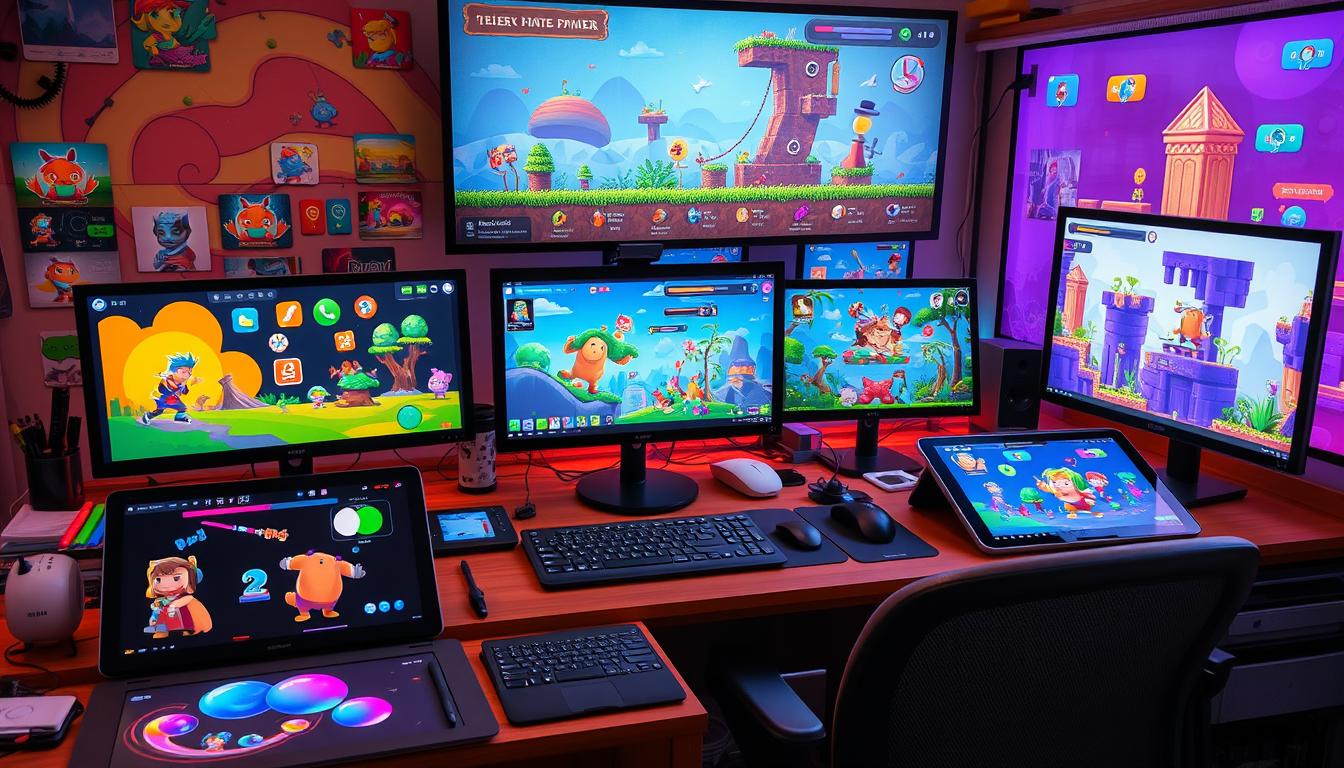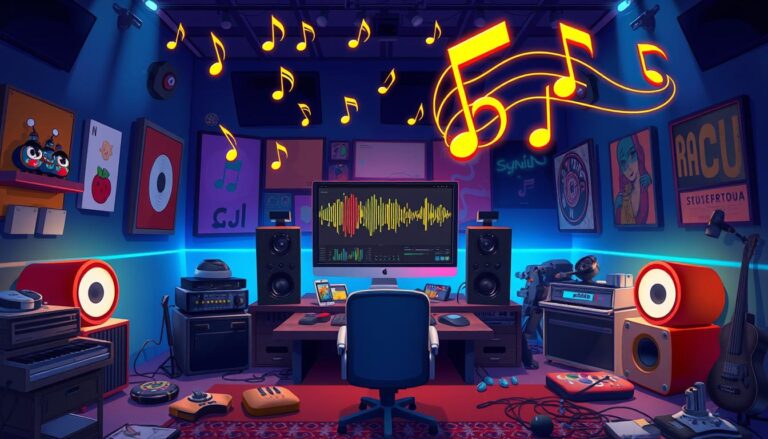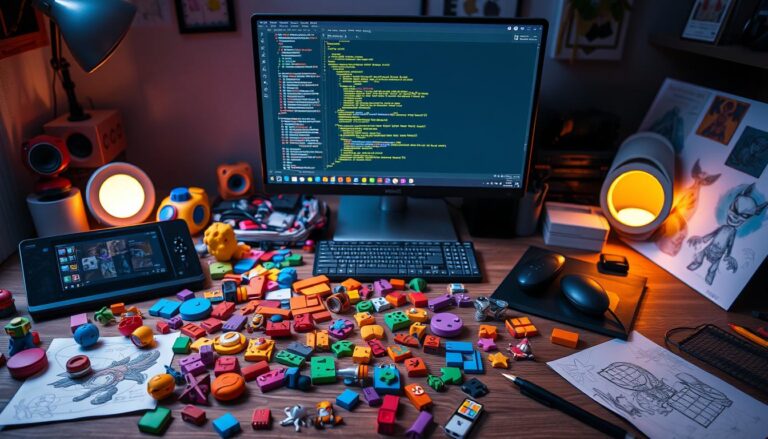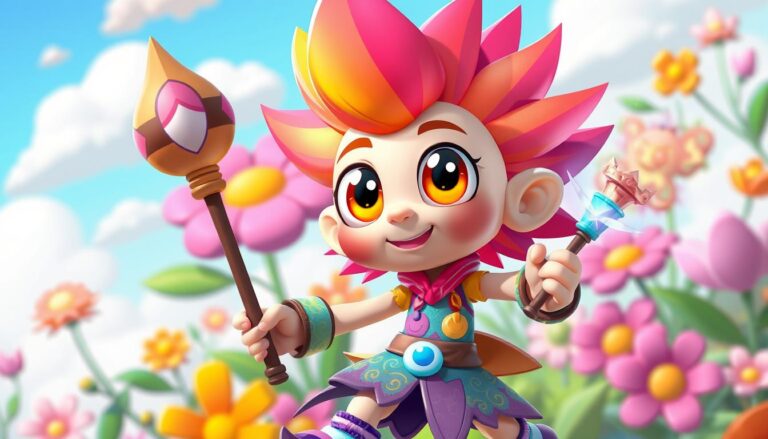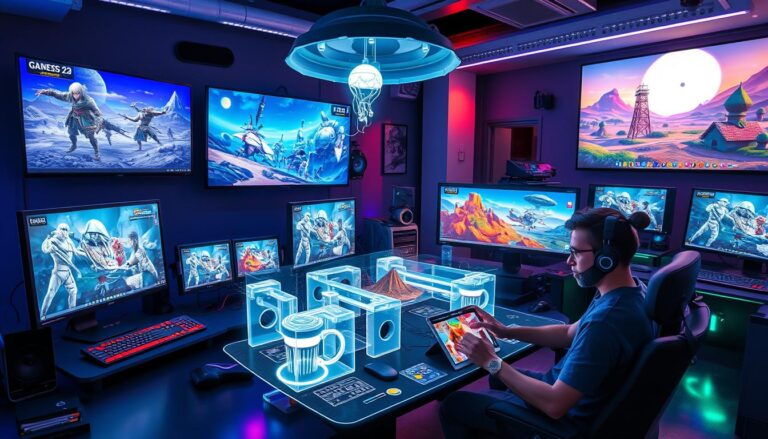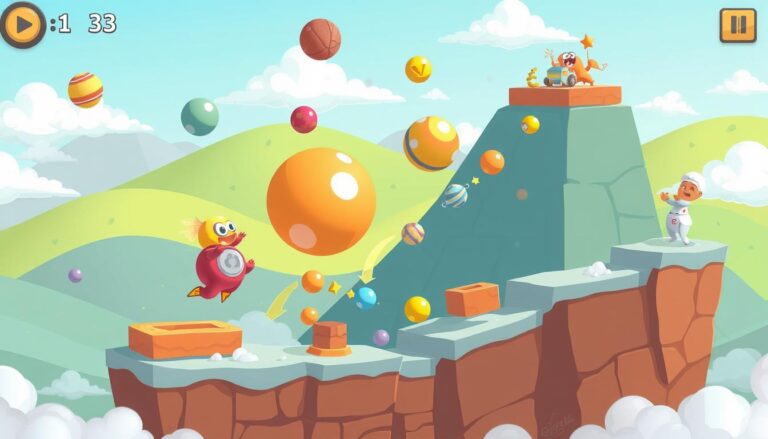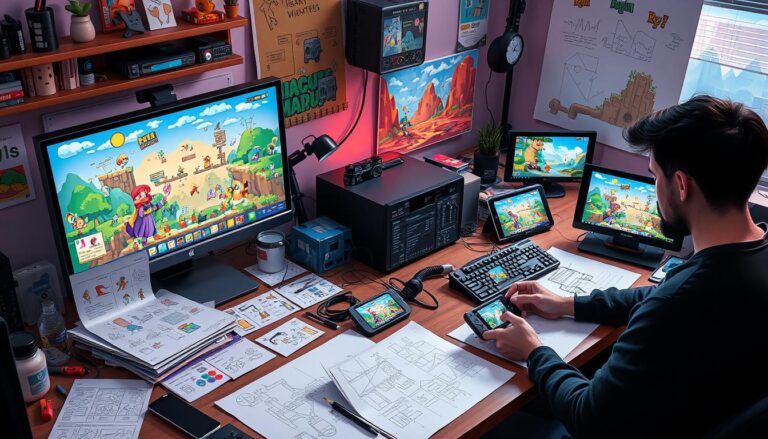What Are the Best Tools for 2D Game Development?
In the world of game development, 2D games are very popular. Games like Cuphead and Stardew Valley are loved by many. They show how important 2D games are in the industry.
For those who want to make 2D games, choosing the right tools is key. This article will look at the best tools for creating 2D games.
More and more free tools are available for 2D game development. This makes it easier for new developers to start. Construct 3, GameMaker Studio 2, and Godot are some of the most popular tools.
Construct 3 lets beginners make 2D games for free. Advanced features start at $99 a year. GameMaker Studio 2 is even cheaper, starting at $39 a year. Godot is free and open-source, supporting many programming languages.
Tools for 2D game development have their own strengths. Unity is great for both 2D and 3D games. Phaser 3 is focused on 2D games, but it might not have as many users as Phaser 2.
Choosing the right tool depends on what you need. GameMaker Studio 2 is easy to use. Godot is versatile. Unity has a lot of features. There are many options for different developers and projects.
Understanding Game Development Platforms and Tools
In the world of game development, many software platforms and tools help creators. From pros to hobbyists, these Game Engines, scripting tools, and more help bring ideas to life. They shape the game creation world, making it easier for developers to share their visions.
Types of Game Development Software
The game development world has a wide range of software. Each has its own strengths and uses. Here are some key ones:
- Unity – A versatile engine that’s almost half the gaming industry. It’s known for its strong features and works on many platforms.
- CryEngine – Known for amazing graphics, it’s perfect for games that focus on looks.
- Unreal Engine – Offers great visuals and simulations. It’s easy to use, even for those who aren’t programmers.
- Amazon Lumberyard – It has Twitch integration, VR preview, and visual scripting. It makes development smooth.
- Cocos2d-x – A tool for making games on many platforms. It supports lots of services.
- Construct 3 – A browser-based platform. It’s easy to use and doesn’t need a lot of coding.
Key Features to Consider
When picking game development tools, look for certain features. These include easy-to-use User Interfaces, good documentation, and strong Asset Management. Also, a big community and support for many platforms are important.
Cost and Licensing Models
The game development world has different costs and licensing models. Some tools, like Unity and Cocos2d-x, are free or open-source. Others, like Unreal Engine and CryEngine, need a paid license based on how much money you make. It’s important to choose what fits your project’s needs and budget.
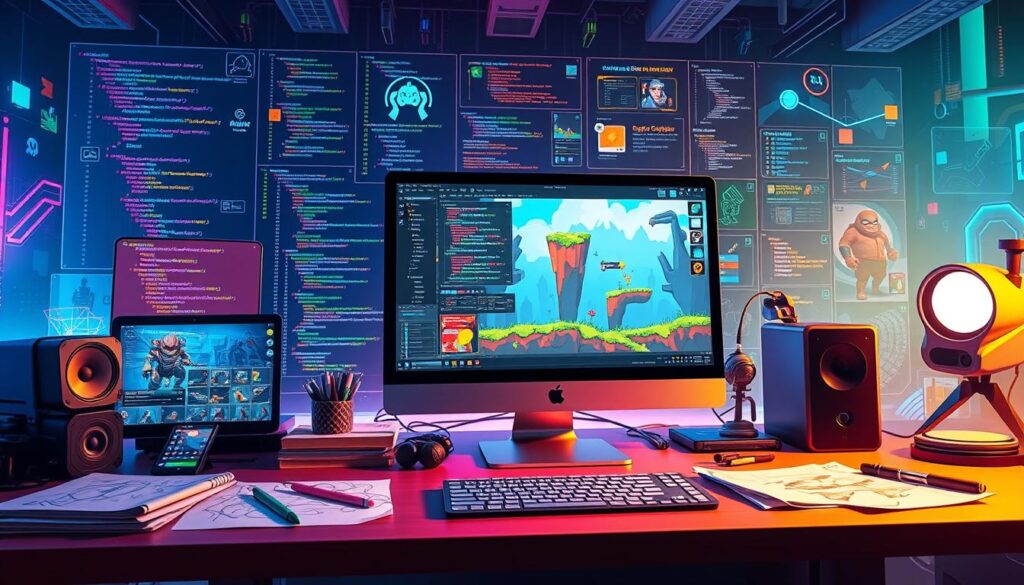
Exploring the many game development platforms and tools opens up endless possibilities. It lets creators make engaging and new games that reach people all over the world.
Popular Game Engines for 2D Game Development
There are many powerful game engines for 2D game development. Unity, Godot Engine, GameMaker Studio 2, and Solar 2D (formerly Corona) are among the most popular. They meet different needs and preferences.
Unity is the top choice on itch.io. It has a user-friendly interface and supports both 2D and 3D games. Its large community and asset library help create engaging 2D games.
Godot Engine is free and open-source. It’s known for its node-based architecture and support for various programming languages. It’s great for indie developers who want fast iteration and robust features.
GameMaker Studio 2 focuses on 2D game development. It uses a drag-and-drop workflow, making it easy to create games without coding. Its GML scripting language is powerful, supporting a wide range of 2D games.
Solar 2D (formerly Corona) is open-source and uses Lua. It’s lightweight and fast, perfect for 2D games and mobile apps. Its simple API appeals to developers who like a minimalistic approach.
Each engine has unique features and supported platforms. Developers should consider their needs and preferences to choose the best engine for their 2D game development.
| Game Engine | Licensing | Supported Platforms | Strengths |
|---|---|---|---|
| Unity | Freemium | PC, Console, Mobile, Web | Cross-platform, Large asset library, Extensive documentation |
| Godot Engine | Open-source | PC, Console, Mobile, Web | Free, Node-based architecture, Supports multiple programming languages |
| GameMaker Studio 2 | Freemium | PC, Console, Mobile | Designed for 2D games, Drag-and-drop workflow, Powerful scripting language |
| Solar 2D | Open-source | PC, Mobile, Web | Lightweight, Fast, Lua scripting language |
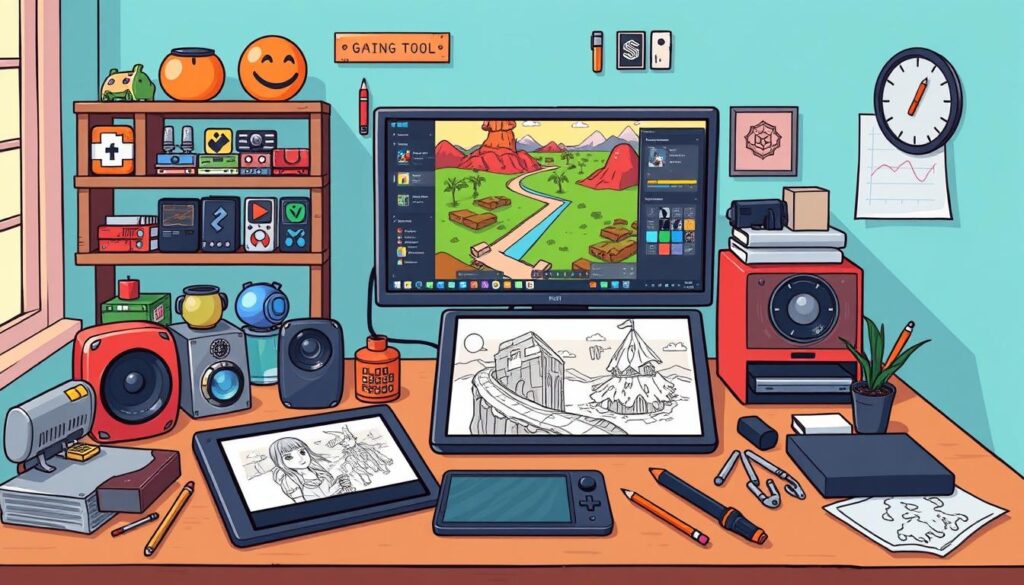
Asset Creation and Management Tools
Making games that grab your attention needs a solid asset creation pipeline. This includes tools and workflows for digital art, sprite creation, animation, and sound design. Managing these assets well is key to a game’s success.
Digital Art and Sprite Creation Software
Developers use tools like GIMP, Sketchbook, Krita, and Piskel to create Game Physics and Sprite Animation. These tools help make 2D assets look amazing. They offer features like layer management, color palettes, and brushes.
Animation Tools and Frameworks
To make Level Design come alive, animation is crucial. Blender, TinkerCad, MagicaVoxel, SculptGL, and Figuro are great for 3D modeling and animation. They help developers create engaging character and environmental animations.
Audio and Sound Design Resources
Good audio is essential for a great game. Developers use Audacity to add sound effects, music, and dialogues. This makes the game feel more real and engaging.
Managing assets well is vital in game development. It helps keep the creative process smooth and efficient. By using the right tools, game studios can manage their assets better, keep track of changes, and protect their ideas.
| Asset Type | Popular Tools |
|---|---|
| 2D Illustrations and Sprites | GIMP, Sketchbook, Krita, Piskel |
| 3D Modeling and Animation | Blender, TinkerCad, MagicaVoxel, SculptGL, Figuro |
| Audio and Sound Design | Audacity |
Specialized Tools for Different Game Genres
In the world of 2D game making, special tools have come up for different types of games. These tools help creators make everything from text-based stories to interactive games and web-based HTML5 games. Each tool is designed to meet the specific needs of its genre.
For those who love visual novels and interactive stories, Ren’py is a top pick. It’s built on Python and is easy to use. It’s great for making stories with choices and deep character interactions.
RPG Maker is a standout for role-playing games (RPGs). It has pre-made templates and drag-and-drop tools. This makes it easy for developers to create games with battles, inventory, and character growth.
For HTML5 games, Phaser and Three.js are popular choices. They’re JavaScript tools that let developers make games that work on many devices. They use HTML5 and web tech to make games that are fun and work well everywhere.
These specialized tools are key to making great 2D games. They help create everything from deep stories in visual novels to exciting RPGs and fun HTML5 games.
| Tool | Specialty | Key Features |
|---|---|---|
| Ren’py | Visual Novels |
|
| RPG Maker | Role-Playing Games |
|
| Phaser | HTML5 Games |
|
Conclusion
Choosing the right software for 2D game development depends on several factors. These include the game type, the developer’s skill level, and project needs. While Unity and Unreal Engine offer powerful tools, GameMaker Studio and Construct are great for quick prototypes or simple games.
The game development process is complex. It starts with a game concept and ends with optimization and release. It’s important to learn programming, create assets, and design games well.
Developers should look at different tools and think about their project’s needs. The right software and following best practices help create fun 2D games. These games can attract players on many platforms and in various genres.
